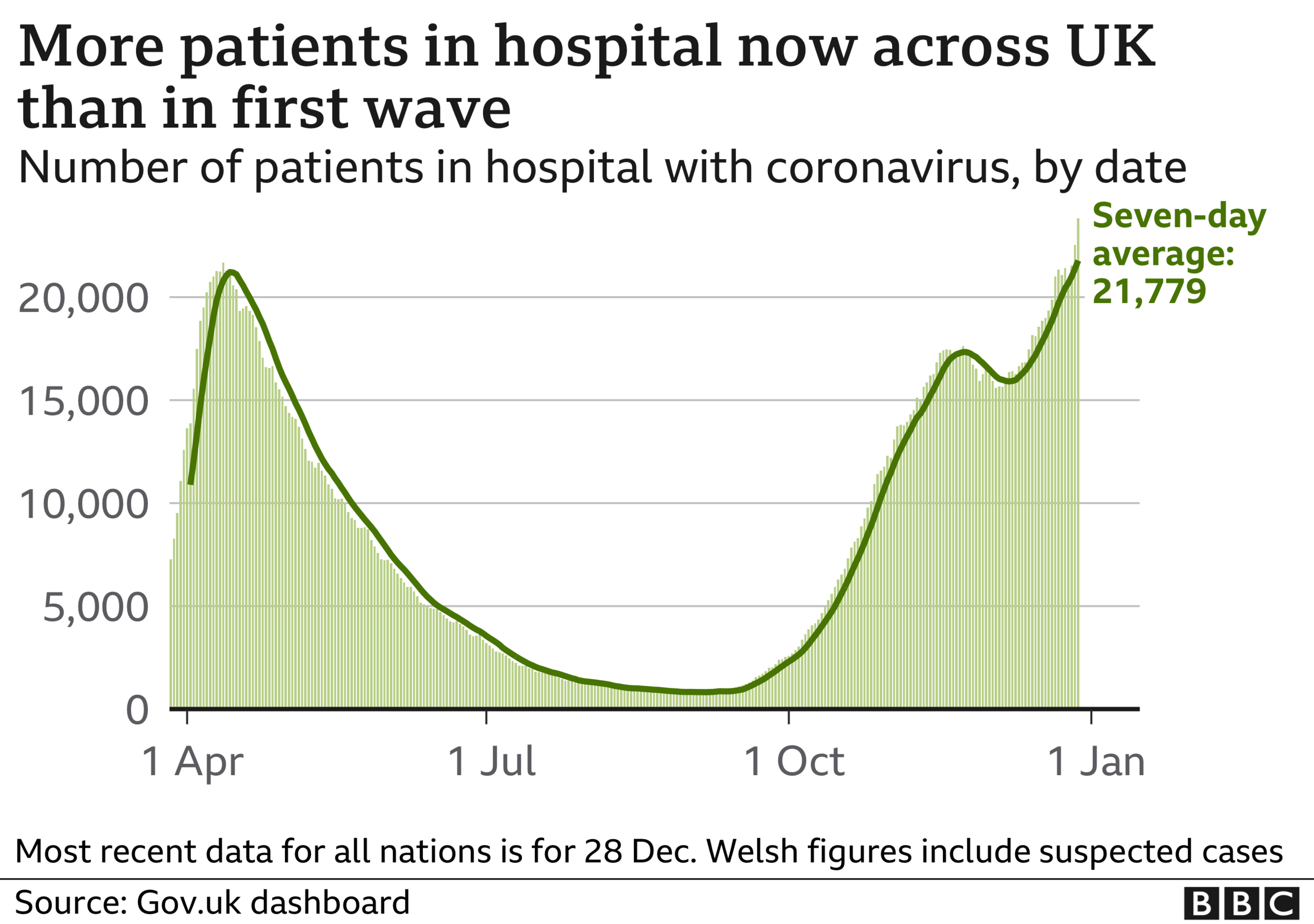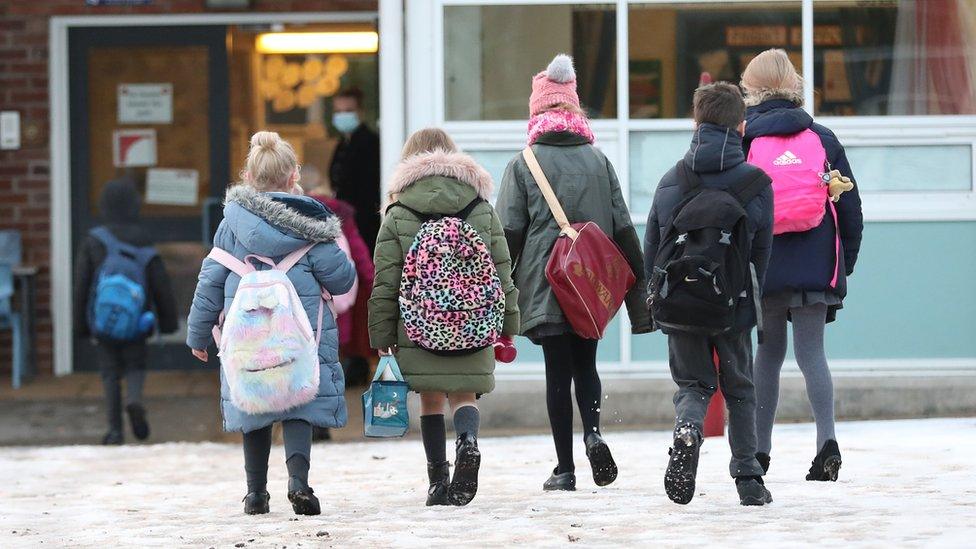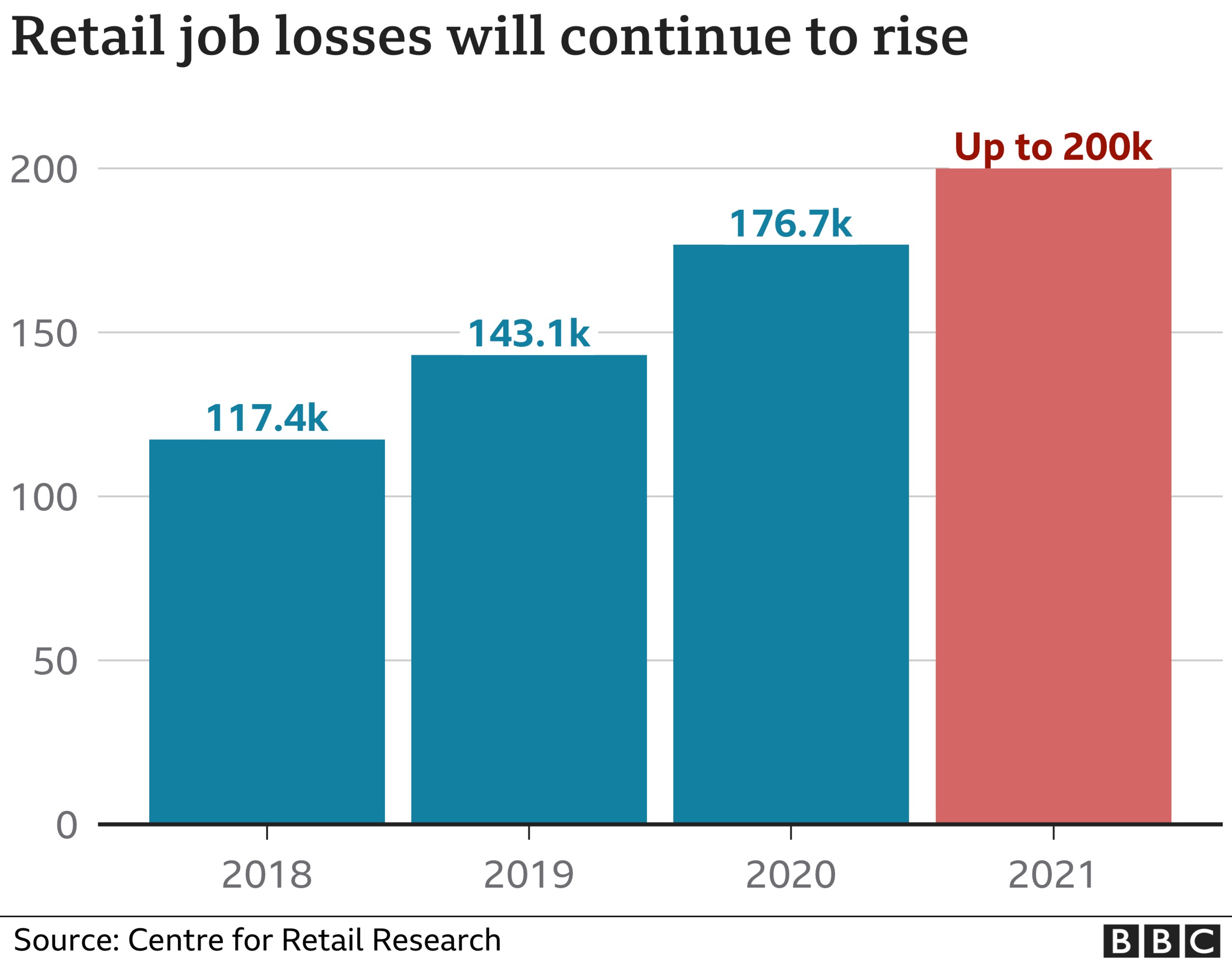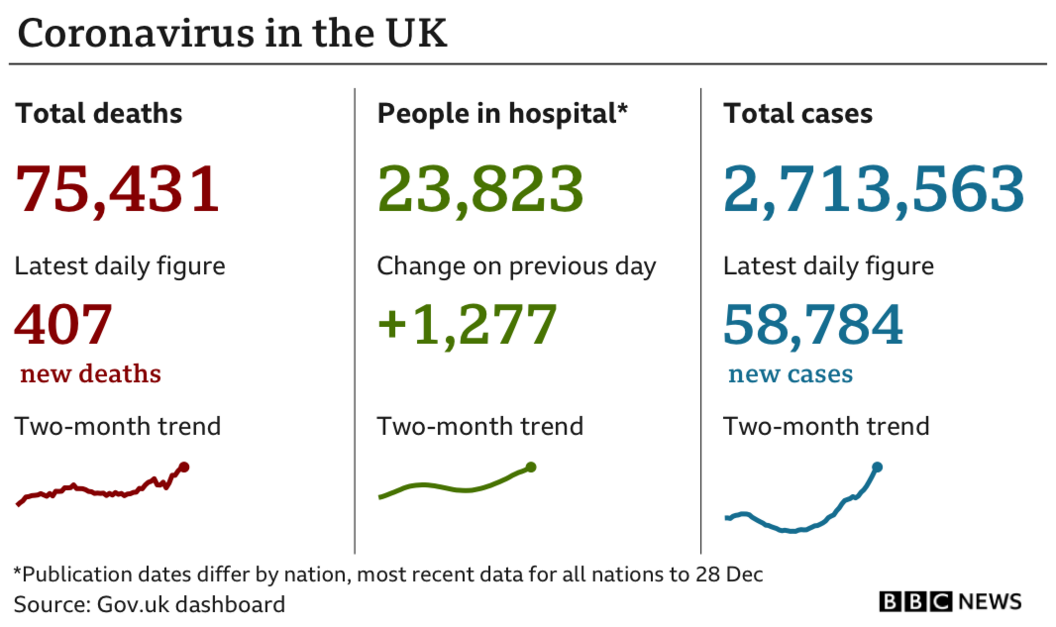Covid-19: UK lockdown, school closures and mental health tips
- Published
Here are five things you need to know about the coronavirus pandemic this Tuesday morning. We'll have another update for you at 18:00 BST.
1. New lockdowns begin in England and Scotland
The prime minister is once again ordering us to "Stay at home, Protect the NHS, Save lives" as infection levels surge. Wales and Northern Ireland are already two weeks into their own lockdowns, but they've also announced new virus measures. Things look similar to March in many ways, with the most vulnerable told to shield. We've set out all of the rules in detail. Boris Johnson admitted the coming weeks would be "the hardest yet". Scotland's lockdown will be reviewed at the end of January. England's rules are expected to last until at least mid-February, by which time the PM hopes everyone in the top four priority groups - some 14 million people - will have received a first dose of the vaccine.


2. Schools forced to close
All schools in England have been ordered to switch to online learning, except for vulnerable and key worker children. and this summer's exams will now not go ahead as planned. BTEC and other vocational exams will still take place this month. Nurseries and other years providers can remain open. Scottish schools will be shut until February at least, while Wales and Northern Ireland will also continue with remote learning for several weeks. Apart from those on a limited number of courses, university students must not return to campuses. See more on the risks around children and schools.

Some primary schools returned for just a single day, only to close again

3. Businesses call for more financial support
Business leaders say government must act to limit another wave of closures and redundancies - and more state aid should have been announced at the same time as the new lockdowns. The embattled pub and beer sector said its "road to recovery just got longer", especially as takeaway alcohol sales will be banned - a blow to many small breweries and village pubs who have used it as a lifeline. UK Music, meanwhile, wants ministers to introduce an insurance scheme for cancelled events. The furlough scheme is still in place - read more about who's eligible.


4. Exercise and elite sport
During the first spring lockdown, all professional competition ground to a halt, but this time leagues and tournaments can keep going behind closed doors. It'll give us something to watch while our own amateur sporting enjoyment is severely curtailed. Venues such as gyms, tennis courts and golf courses will be closed in England, and exercising outside is only allowed once a day. Organised outdoor sport for disabled people is allowed to continue, but children's football is suspended. The picture is quite complicated - for example, golf can continue in Scotland under strict rules - so see our story for more.

Bath are set to host Wasps on Friday in the first of this weekend's Gallagher Premiership matches

5. Coping with it all
The return to yet another lockdown, especially in the depths of winter, is likely to hit many of us hard. We'll continue to bring you uplifting stories wherever we can and offer tips on how to cope. Dr Radha Modgil from BBC Radio 1's Life Hacks shares her top five ways to stay mentally and emotionally well. BBC Newsround also has some tips aimed specifically at children. And if home-schooling is one of the challenges you're facing this morning, BBC Bitesize can help. Social and childcare bubbles also remain in place, unlike in March - a reminder of how they work.
Five mental health tips to help deal with lockdown


And don't forget...
Find more information, advice and guides on our coronavirus page.
Plus, all hope is pinned on vaccination to get us out of the current crisis. Find out when you'll be eligible to get one.


What questions do you have about coronavirus?
In some cases, your question will be published, displaying your name, age and location as you provide it, unless you state otherwise. Your contact details will never be published. Please ensure you have read our terms & conditions and privacy policy.
Use this form to ask your question:
If you are reading this page and can't see the form you will need to visit the mobile version of the BBC website to submit your question or send them via email to YourQuestions@bbc.co.uk, external. Please include your name, age and location with any question you send in.

LACKING MOTIVATION?: 6 hours of dance hits to help you stay energised all day long
THE NAKED SCIENTISTS: Why are people catching coronavirus on purpose?
